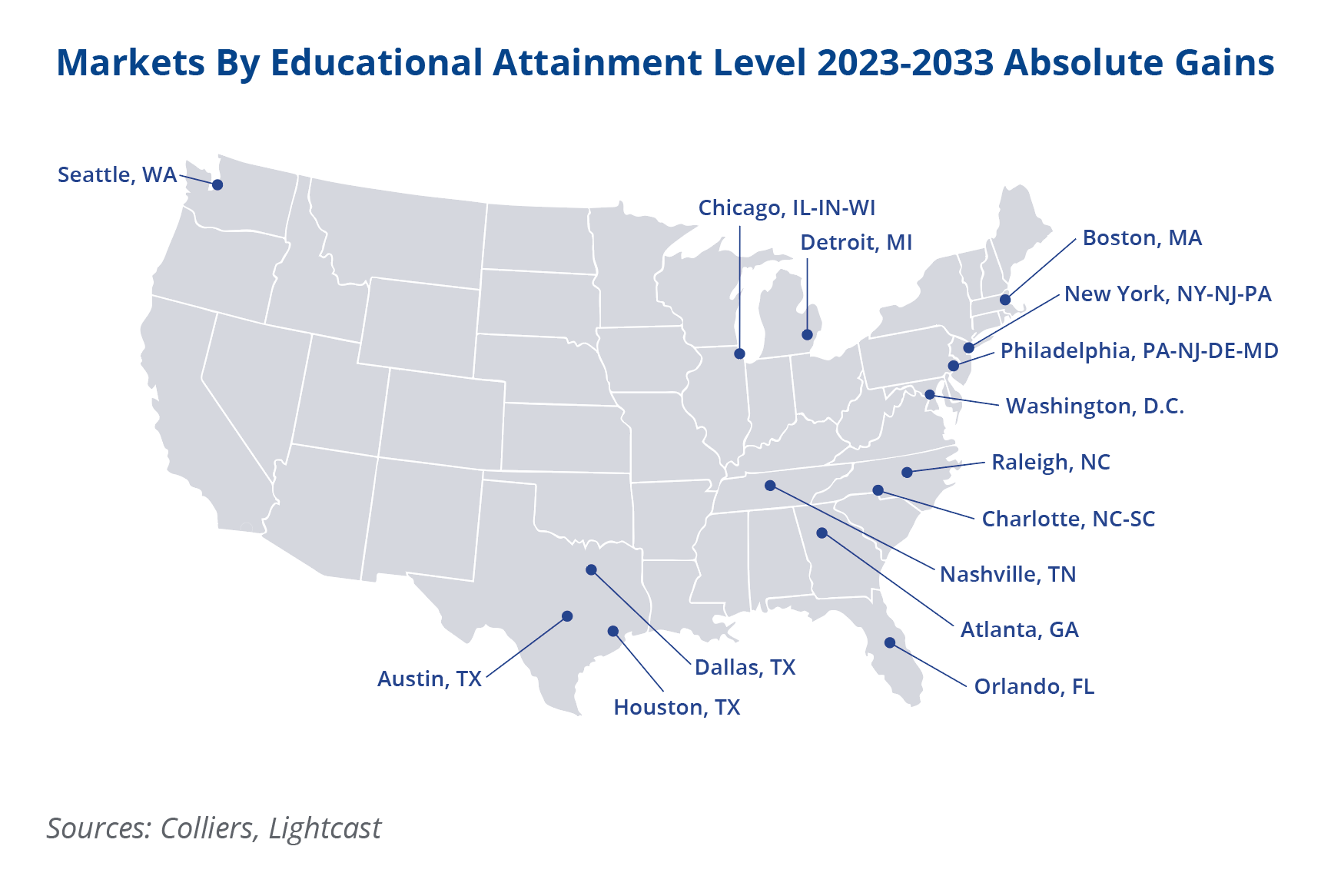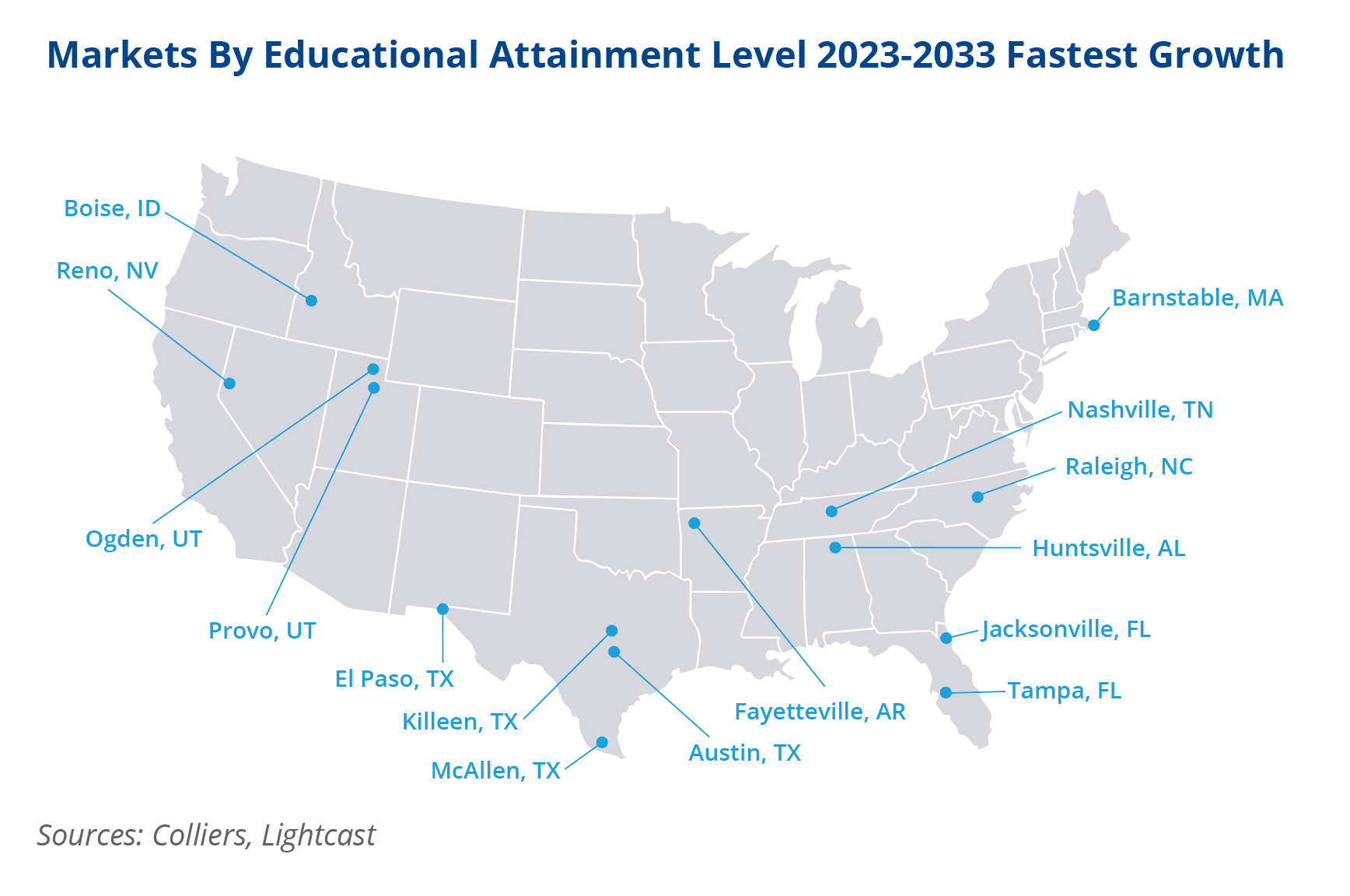- History has shown that increasing educational attainment benefits economic and real estate performance.
- Over the past decade, markets such as New York, Dallas, Los Angeles, Houston, and Atlanta have added the most educated workers.
- Meanwhile, Austin; Myrtle Beach, SC; Boise, ID; Sarasota, FL; and Fayetteville, AR experienced the fastest growth.
- Future projections offer alternative investment locales.
- Investors have options: chase pure numbers or growth. Some metros end up on both lists.
Investors have long sought to get ahead of positive demographic trends, including boosting educational attainment. Over the past decade, nearly 19 million people 25 years or older earned their bachelor’s or advanced degree. This rate was well ahead of 2003-2013, when close to 11 million individuals earned a four-year degree or higher. Unsurprisingly, some of the nation’s largest metro areas added the most degrees, led by New York, Dallas, Los Angeles, Houston, and Atlanta. Markets such as Austin, Tampa, Charlotte, and Orlando also made the top 20, posting some of the fastest growth overall.
Lightcast’s projections for the next decade offer investors potential targets. Similar to recent periods, major cities are expected to lead the charge with the highest total of new degree holders, with Philadelphia replacing Los Angeles in the top five. Provo, UT; Barnstable, MA; Boise, ID; Huntsville, AL; and Austin are forecast to post the most rapid growth. On the other end of the spectrum, the outlook for several markets in California is weak. If these estimates are accurate, the Bay Area and Southern California (outside of the Inland Empire) will tread water over the next 10 years, marking a significant change from the past couple of decades. Other lagging markets can be found in Michigan and Ohio. In preparation for the next cycle, comparing past performance with future expectations can help investors outperform with the proper market selection.

 Aaron Jodka
Aaron Jodka



 Sandy McDonald
Sandy McDonald Ronna Larsen
Ronna Larsen

 Nick Michael
Nick Michael Matthew Mintier
Matthew Mintier Chris Stickney
Chris Stickney